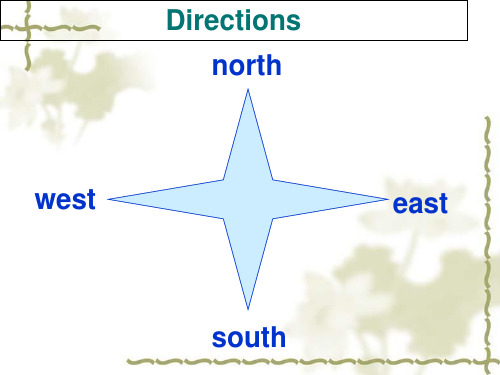新概念英语第一册第55-56课课件
合集下载
新概念英语第一册55-56-PPT课件

What do they usually do?
In the morning...... At noon...... In the afternoon...... In the evening...... At night......
Homework
Talk about your family
breakfast supper/dinner
The eating habits of Americans
美国人的饮食习惯
Breakfast
Breakfast time, the general in 8:00 They always eat baked bread, cereal and coffee,
3. At noon, who always eats lunch at home? Mr. or Mrs. Sawyer?
Mrs. Sawyer.
4. In the afternoon, what does Mrs. Sawyer usually do? What do they often do? She usually sees her friends. They often drink tea together.
到达……( 大地方) 到达……(小地方)
My father will arrive __i_n_ London tomorrow. I often arrive __/__home early in the evening.
Let’s read and remember the new words:
his wife watch television.
do one's homework 做作业
新概念英语NCE1_Lesson55-56(共28页)课件

句重 式点
1表示经常的或习惯性的动作,常与表示频度的时
间状语连用。
2.表示主语具备的性格、能力和特征。
3.表示现在的状态。
4.表示客观事实和普遍真理。
5.在时间状语从句和条件状语从句中,常用一般现
在时代替将来时。
6.表示预先计划或安排好的行为。
7.小说故事用一般现在时代替一般过去时。
一般现在时常与以下时间状语连用:always, usually , regularly 有规律的, every
在姓氏后加s,前面加上Smiths
表达地址时,在具体的门牌号前要用at, 在城市或者街名前要用in
如:They live at 87 king street.
They live in king street.
They live in Chengdu.
• Take sb to someplace. Eg:
He takes his son to school.
• arrive是不及物 动词,在它后面 不可以直接跟名 词作为宾语,
• 如:arrive at a village
arrive in Shanghai
• The Sawyers live at 87 King Street. In the morning, Mr. Sawyer goes to work and the children go to school. Their father takes them to school every day. Mrs. Sawyer stays at home every day. She does the housework. She always eats her lunch at noon. In the afternoon, she usually sees her friends. They often drink tea together. In the evening, the children come home from school. They arrive home early. Mr. Sawyer comes home from work. He arrives home late. At night, the children always do their homework. Then they go to bed. Mr. Sawyer usually reads his newspaper, but sometimes he and his wife watch television.
新概念英语第一册第55-56课件(共25张PPT)

要加-s
表述客观规律或事实用一般现在时
The plane can fly in the sky. The earth goes around the sun. The book is yellow. He is tall. He is very smart! She is very beautiful!
谢谢观赏
You made my day!
我们,还在路上……
What do you usually do in the weekend? in your vacation?
Do some exercises: 1. ( c ) I often _____ up at 7:oo in the morning. My mother often
_____up at 6:30. A. get, get B. gets, gets C. get, gets D. gets, get 2. (B )Jim’s brother ____ in a factory. He usually _____ to work by car. A. work, go B. works, goes C. works, go D. work, goes 3. (A) ____ you always ____ basketball on Sundays? A. Do, play B. Does, play C. Are, playing D. Are, play 4. (D) _____ your father often____ TV in the evening?
Does she often do her homework at night?
Lesson 56 What do they usually do?
表述客观规律或事实用一般现在时
The plane can fly in the sky. The earth goes around the sun. The book is yellow. He is tall. He is very smart! She is very beautiful!
谢谢观赏
You made my day!
我们,还在路上……
What do you usually do in the weekend? in your vacation?
Do some exercises: 1. ( c ) I often _____ up at 7:oo in the morning. My mother often
_____up at 6:30. A. get, get B. gets, gets C. get, gets D. gets, get 2. (B )Jim’s brother ____ in a factory. He usually _____ to work by car. A. work, go B. works, goes C. works, go D. work, goes 3. (A) ____ you always ____ basketball on Sundays? A. Do, play B. Does, play C. Are, playing D. Are, play 4. (D) _____ your father often____ TV in the evening?
Does she often do her homework at night?
Lesson 56 What do they usually do?
新概念一册L55-L56课课件

usually adv. 通常
频率副词:指经常发生的习惯性的动作,与一般现在时连用 always总是 usually通常 often经常 sometimes有时 never从不
eg:你下午经常干什么?我经常玩电脑 -What do you usually do in the afternoon? -I usually play computer.
Mrs. Sawyer stays at home every day. She does the housework.
1.the Sawyers是指索耶一家人,在英文中,姓氏后面加-s,前面加定冠词the,用来指一家人 2.live at…住在…(后接小的地点)live in…住在…(大地点) 3.in the morning在上午 in the afternoon/ evening在下午/晚上 at noon在中午 at night在晚上 4.go to work 去上班 go to school去上学 5.take sb.(某人)to sp.(某地)---这里的sb.用人称代词宾格(me/us/you/him/her/it/them) 6.stay at home待在家 7.do the housework做家务
At night, the children always do their homework. Then they go to bed. Mr. Sawyer usually reads his newspaper, but sometimes he and his wife watch television.
hometown家乡 homework家庭作业
housework n.家务(不可数名词)
• do the housework 做家务 • eg:我妈妈每天做家务。
新概念英语一册第55-56课件

adv. 在上午 adv. 在下午 adv. 在晚上
• at •
noon night
adv. 正午时 adv. 在夜里
Listen with Questions!
• When does Mrs. Sawyer eat her lunch? She eats her lunch at noon. • Who takes children to school every day? Their father takes them to school every day. • When do the children do their homework? The children always do their homework at night. • What does Mr. Sawyer do after he go to bed?
• 这些地点副词前面不能加介词:here,there, home,upstairs,downstairs,downtown,abroad
一般现在时
• 描述经常出现的动作,或经常存在的状态 • 常配副词:usually, often, sometimes • 常用时间状语:
• Work in pairs, and make a dialogue based on pictures of P111
• the + 姓氏s = 某某一家人 • the Smiths = 史密斯一家 • the Johnsons = 约翰逊一家
live in King Street live in Beijing
• go to school 去上学 go to work 去上班 • goes: “go”的第三人称单数形式
guess→guesses teach→teaches fix→fixes wash→washes do→does
新概念第一册 L55-L56课件

Warming Up
Lesson55 The Sawyar FamilyFra bibliotek教学重难点
• 知识目标: 1.知记本课的单词和词组 2.掌握一般现在时态的时间状语 3.掌握句式What does\do ually do? • 能力目标: 能够理解并且会应用一般现在时 情感目标: 通过介绍自己的家庭成员和工作,进一步 加深和家人的情感沟通!
一般现在时常与以下时间状语连用:always, usually , regularly 有规律的, every morning/night/evening/day/week/year , often, sometimes , from time to time有时候, twice a week, rarely罕有的 , seldom很少,不常, once a month, hardly, ever永远 , never
• Take sb to someplace. Eg: He takes his son to school.
• arrive是不及物 是不及物 动词, 动词,在它后面 不可以直接跟名 词作为宾语, 词作为宾语, • 如:arrive at a village arrive in Shanghai
句 式
重 点
1表示经常的或习惯性的动作,常与表示频度的时 间状语连用。 2.表示主语具备的性格、能力和特征。 3.表示现在的状态。 4.表示客观事实和普遍真理。 4. 5.在时间状语从句和条件状语从句中,常用一般现 在时代替将来时。 6.表示预先计划或安排好的行为。 7.小说故事用一般现在时代替一般过去时。
Bye
bye !
See you next time!
1我们每天七点钟上学。 2.你平时周末做什么呢?我通常去会会朋友。 3.我家住在高新区紫瑞大道188号。 4.高小姐教英语。 5.我父亲起得很早。 6.我们非常喜欢英语。 7. 7.他常常步行去上学。 8.雪莉有时去游泳。 9.她学英语吗? 10.他是做什么工作的? 11.他不在家里做作业。 12.我们星期天不去学校。 13.他经常十点钟睡觉。 14.有时我五点起床。 15.我们通常周日去购物。
Lesson55 The Sawyar FamilyFra bibliotek教学重难点
• 知识目标: 1.知记本课的单词和词组 2.掌握一般现在时态的时间状语 3.掌握句式What does\do ually do? • 能力目标: 能够理解并且会应用一般现在时 情感目标: 通过介绍自己的家庭成员和工作,进一步 加深和家人的情感沟通!
一般现在时常与以下时间状语连用:always, usually , regularly 有规律的, every morning/night/evening/day/week/year , often, sometimes , from time to time有时候, twice a week, rarely罕有的 , seldom很少,不常, once a month, hardly, ever永远 , never
• Take sb to someplace. Eg: He takes his son to school.
• arrive是不及物 是不及物 动词, 动词,在它后面 不可以直接跟名 词作为宾语, 词作为宾语, • 如:arrive at a village arrive in Shanghai
句 式
重 点
1表示经常的或习惯性的动作,常与表示频度的时 间状语连用。 2.表示主语具备的性格、能力和特征。 3.表示现在的状态。 4.表示客观事实和普遍真理。 4. 5.在时间状语从句和条件状语从句中,常用一般现 在时代替将来时。 6.表示预先计划或安排好的行为。 7.小说故事用一般现在时代替一般过去时。
Bye
bye !
See you next time!
1我们每天七点钟上学。 2.你平时周末做什么呢?我通常去会会朋友。 3.我家住在高新区紫瑞大道188号。 4.高小姐教英语。 5.我父亲起得很早。 6.我们非常喜欢英语。 7. 7.他常常步行去上学。 8.雪莉有时去游泳。 9.她学英语吗? 10.他是做什么工作的? 11.他不在家里做作业。 12.我们星期天不去学校。 13.他经常十点钟睡觉。 14.有时我五点起床。 15.我们通常周日去购物。
新概念第一册第55-56课课件PPT课件
comes home from work, arrives home late
At night
the children Mr. Sawyer
do their homework, go to bed reads his newspaper
Mr. Sawyer and
watch television
his wife 第22页/共28页
第21页/共28页
When In the morning
Who
Mr. Sawyer
the children
Mrs. Sawyer
At noon
In the afternoon
Mrs. Sawyer Mrs. Sawyer
In the evening
the children Mr. Sawyer
What
第12页/共28页
• ①stop-stops [s] ; make-makes [s] • ②read-reads [z] ; play-plays [z] • 1.大多数动词在词尾加“s”在清辅音后发音为[s],在浊辅音及元音后发音为 [z]。
第13页/共28页
• fly-flies [iz]; carry-carries [iz] • study-studies [iz]; worry-worries [iz] • 2、以辅音字母加“y”结尾的,要先将“y”变为“i”,然后再加“es”读[iz]
➢频率副词 often, usually, sometimes, always
第18页/共28页
主谓结构
主语不是单三: 主语+实义动词原形
主语是第三人称单数:
主语+实义动词单三形式
1.一般动词末尾直接加-s
At night
the children Mr. Sawyer
do their homework, go to bed reads his newspaper
Mr. Sawyer and
watch television
his wife 第22页/共28页
第21页/共28页
When In the morning
Who
Mr. Sawyer
the children
Mrs. Sawyer
At noon
In the afternoon
Mrs. Sawyer Mrs. Sawyer
In the evening
the children Mr. Sawyer
What
第12页/共28页
• ①stop-stops [s] ; make-makes [s] • ②read-reads [z] ; play-plays [z] • 1.大多数动词在词尾加“s”在清辅音后发音为[s],在浊辅音及元音后发音为 [z]。
第13页/共28页
• fly-flies [iz]; carry-carries [iz] • study-studies [iz]; worry-worries [iz] • 2、以辅音字母加“y”结尾的,要先将“y”变为“i”,然后再加“es”读[iz]
➢频率副词 often, usually, sometimes, always
第18页/共28页
主谓结构
主语不是单三: 主语+实义动词原形
主语是第三人称单数:
主语+实义动词单三形式
1.一般动词末尾直接加-s
新概念1课件L55-56
come home from school 放学回家
下班回家 饭后回家
come home from work
come home from dinner
arrive home 到家 arrive in + 大地点 arrive at + 小地点 get to + 表示地点的名词 reach + 表示地点的名词 eg: 我们什么时候能到美国?
Lesson55-56重点、难点
时间频度副词的位置
时间频度副词: Always,often,sometimes,usually,never, seldom,once,hardly在句中位于be动词,助 动词和情态动词之后,行为动词之前。如: She is often busy. I don’t always have breakfast.
lesson 55
The Sawyer family
[‘sɔ:jə: ]
索耶
New words
1.live v.住,生活 e.g. I live here. -Where do you live? -I live in Guangdong. 我住在广东。 life n.生活,生命 Money or life? Life is full of ups and downs.
live at
住 在……
live in + 大地点 live in Beijing / Shanghai… live at + 小地点 live at 87 King Street 英文地名表达不同于中文,是从小单 位依次向大单位排列,不同地点级别常另 起一行。 eg: 北京海淀区光明路11号 11 Guangming Street Haidian District,Beijing
新概念英语第一册_55_56课课件
together adv. 一起
eg :My best friend and I live together. eg :We sometimes drink coffee together.
evening n. 晚上
一般指下午以后和上床睡觉前 这段时间比night的时间要早。 night 一般指夜里
night n. 夜间
good night 晚安 at night 在夜里 all night along 一整夜
arrive v. 到达
arrive in 后面一般接城市或国家 arrive in France arrive 后面可直接加副词 arrive here arrive there arrive home arrive at 后面接的地点,一 般是公共场所或某座大楼。 arrive at the hotel
sework n. 家务 h n. 午饭 ernoon n. 下午
usually adv. 通常 together adv. 一起 evening n. 晚上 arrive v. 到达 night n. 夜间
live v. 住,生活(是指长久的居住,住在自己家中)
eg: where do you live ? 你住在哪里?
reads her
milk
eats her lunch newspaper
Bye---bye!
知识回顾 Knowledge Review
—I usually play on the computer.
dusts the makes the cupboard bed
shaves
listen
cleans the go to bed blackboard
eg :My best friend and I live together. eg :We sometimes drink coffee together.
evening n. 晚上
一般指下午以后和上床睡觉前 这段时间比night的时间要早。 night 一般指夜里
night n. 夜间
good night 晚安 at night 在夜里 all night along 一整夜
arrive v. 到达
arrive in 后面一般接城市或国家 arrive in France arrive 后面可直接加副词 arrive here arrive there arrive home arrive at 后面接的地点,一 般是公共场所或某座大楼。 arrive at the hotel
sework n. 家务 h n. 午饭 ernoon n. 下午
usually adv. 通常 together adv. 一起 evening n. 晚上 arrive v. 到达 night n. 夜间
live v. 住,生活(是指长久的居住,住在自己家中)
eg: where do you live ? 你住在哪里?
reads her
milk
eats her lunch newspaper
Bye---bye!
知识回顾 Knowledge Review
—I usually play on the computer.
dusts the makes the cupboard bed
shaves
listen
cleans the go to bed blackboard
新概念英语第一册Lesson_55&56极品课件!
Let's retell the story!
Talk about your family!
There are three people in my family. My father is a policeman. He is 37. My mother is 35. • In the morning, I often go to school. I go to school on foot. And my father often goes to work. He goes to work by car. My mother is a housewife. She stays at home every day. She does the housework. • In the afternoon, she often goes shopping with her friends. • In the evening, I often do my homework. My father usually reads newspapers. My mother usually watches TV.
Jimmy doesn’t have lunch at home
• the morning.(对划线部分提问)
What does your father usually do in the morning? Does she often do her homework at night?
• 4.She often does her homework at night.(改一般疑问句)
a week, twice a week, three times a week, hardly, never
- 1、下载文档前请自行甄别文档内容的完整性,平台不提供额外的编辑、内容补充、找答案等附加服务。
- 2、"仅部分预览"的文档,不可在线预览部分如存在完整性等问题,可反馈申请退款(可完整预览的文档不适用该条件!)。
- 3、如文档侵犯您的权益,请联系客服反馈,我们会尽快为您处理(人工客服工作时间:9:00-18:30)。
Directions
north
west
east
south
They are a family.
Lesson 55 The Sawyer family
New words
live v.住,生活 -I live in Shenzhen.
stay v.呆在,停留
-I can stay with you. home 家,在家,到家 go home East or west, home is the best!
Listen to the tape and answer the questions:
1. 2.
Where do the Sawyers live ? What do the children do at night ? What about Mr. Sawyer?
Key Structures
Translations
1.我每天都吃鸡蛋和蛋糕! 2. 他经常都早上跑步。 3. 她有时会出去吃午饭。 4.我们通常都在下午一起喝茶。 5. 他们总是一起喝酒。 6. Mr. Jones晚上经常在家看电视。
Ask your partner
What do you usually do in the morning? afternoon? evening at night? What do you usually do in the weekend? in your vacation?
表述客观规律或事实用一般现在时 The plane can fly in the sky. The earth goes around the sun. The book is yellow. He is tall. He is very smart! She is very beautiful!
Lesson 56 What do they usually do?
dusts the cupboard
makes the bed
shaves
listen
cleans the blackboard
go to bed
Байду номын сангаасwashes the dishes
type some letters
drinks some watch television reads her milk eats her lunch newspaper
housework n.家务
-do housework
lunch 午饭 breakfast supper dinner(较正式,一般指晚宴) meal [mi:l] 餐 have a big meal
afternoon 下午 usually adv.通常 together adv.一起 arrive v.到达
语法点:一般现在时
指经常发生,习惯性的动作。 时间状语一般是usually, always, often, every day等 I often go the school by bike. I do my homework every day. He always late. 注意:主语是第三人称单数时,动词 要加-s
1.Mr. Sawyer stays at home every day. 2.She always eats her lunch at noon. 3.She usually sees her friends. 4.They often drink tea together. 5.The children always do their homework 6. Mr. Sawyer usually reads his newspaper, but sometimes he and his wife watch television.
north
west
east
south
They are a family.
Lesson 55 The Sawyer family
New words
live v.住,生活 -I live in Shenzhen.
stay v.呆在,停留
-I can stay with you. home 家,在家,到家 go home East or west, home is the best!
Listen to the tape and answer the questions:
1. 2.
Where do the Sawyers live ? What do the children do at night ? What about Mr. Sawyer?
Key Structures
Translations
1.我每天都吃鸡蛋和蛋糕! 2. 他经常都早上跑步。 3. 她有时会出去吃午饭。 4.我们通常都在下午一起喝茶。 5. 他们总是一起喝酒。 6. Mr. Jones晚上经常在家看电视。
Ask your partner
What do you usually do in the morning? afternoon? evening at night? What do you usually do in the weekend? in your vacation?
表述客观规律或事实用一般现在时 The plane can fly in the sky. The earth goes around the sun. The book is yellow. He is tall. He is very smart! She is very beautiful!
Lesson 56 What do they usually do?
dusts the cupboard
makes the bed
shaves
listen
cleans the blackboard
go to bed
Байду номын сангаасwashes the dishes
type some letters
drinks some watch television reads her milk eats her lunch newspaper
housework n.家务
-do housework
lunch 午饭 breakfast supper dinner(较正式,一般指晚宴) meal [mi:l] 餐 have a big meal
afternoon 下午 usually adv.通常 together adv.一起 arrive v.到达
语法点:一般现在时
指经常发生,习惯性的动作。 时间状语一般是usually, always, often, every day等 I often go the school by bike. I do my homework every day. He always late. 注意:主语是第三人称单数时,动词 要加-s
1.Mr. Sawyer stays at home every day. 2.She always eats her lunch at noon. 3.She usually sees her friends. 4.They often drink tea together. 5.The children always do their homework 6. Mr. Sawyer usually reads his newspaper, but sometimes he and his wife watch television.
